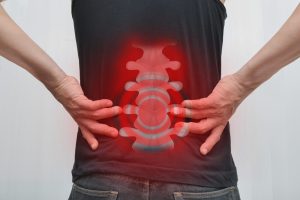 Prevailing in a personal injury case means proving that you have an injury and the other person’s negligence caused it. That isn’t as easy as it seems, but it may not be as hard as you think. Some things must be demonstrated besides saying you have a bad back to prove you have a spinal cord injury.
Prevailing in a personal injury case means proving that you have an injury and the other person’s negligence caused it. That isn’t as easy as it seems, but it may not be as hard as you think. Some things must be demonstrated besides saying you have a bad back to prove you have a spinal cord injury.
Proving you sustained an injury can be complicated by the intermittent nature of spinal cord injuries. Pain, weakness, and numbness can come and go in some types of nerve injury. Therefore, having an attorney help file your claim is important so the evidence can be presented properly.
Paralysis
The most severe outcome of a spinal cord injury, paralysis, means that the victim has lost feeling, movement, or both due to damage to the spinal cord or nerves. In paraplegia, the person is paralyzed below the waist. In tetraplegia, their arms and hands are paralyzed as well.
To demonstrate paralysis, the other party may ask for medical records or ask you to submit to a medical examination.
Numbness or Weakness
Even if you have some movement or feeling in your hands and feet, nerve damage may cause a loss of sensation in portions of your limbs, muscle weakness, or inability to stand or lift things.
The nerves are responsible for your sense of touch, so it is possible you could move your hands following a spinal cord injury but be unable to feel things with your fingers or hands. Conversely, because the nerves also tell the muscles how much things weigh and how to move, you can feel things but cannot lift them.
Proving loss of sensation or muscle weakness is difficult. Expert testimony and sophisticated medical tests that show your weakness when lifting weights are often needed.
Digestive Problems
 Surprisingly, even minor spinal issues can lead to bloating, diarrhea, or constipation. Nerves in the lower back have been implicated in irritable bowel syndrome, and spinal cord damage can lead to bowel and bladder control loss.
Surprisingly, even minor spinal issues can lead to bloating, diarrhea, or constipation. Nerves in the lower back have been implicated in irritable bowel syndrome, and spinal cord damage can lead to bowel and bladder control loss.
The vagus nerve is a cranial nerve (it originates in the brain) but runs along the spinal column. The vagus nerve directly stimulates the stomach and intestines. Injury to the vagus nerve can cause problems with digestion as well.
Proving digestive problems in court can be embarrassing. You will need expert testimony to discuss your medical records and your digestive and stomach disorders history. Evidence of treatment for such ailments post-dating the accident and no treatment for your accident-related condition before the accident will be necessary.
Physical, Mental, and Emotional Support
You may require additional care because of your spinal cord injury, such as:
- Daily physical care. If you cannot care for your daily personal needs due to paralysis or muscle weakness, you can show that you must have additional support for your daily life needs.
- Regular medical care. You may need regular medical visits if you have digestive issues, chronic pain due to neuropathy (nerve pain), or need other regular medical treatment. Records of these routine visits will need to be shown in court to prove that you have a spinal injury.
- Therapists, psychologists, or psychiatrists. The emotional costs of paralysis or chronic nerve damage can be high. If you suffer from PTSD or other mental illness due to your injury and need supportive care, your therapy records can prove your injury’s severity and need ongoing care.
Supportive Equipment
You may need medical equipment to handle your daily routine following a spinal cord injury. Walkers, canes, wheelchairs, braces, and hospital-style beds are all things that your doctor will order and will be able to testify to in court that you need to live an independent life.
The need for these types of equipment will be subject to challenge in court by the other party, and you will need to show that your quality of life is improved by having them or that the lack of them detrimentally impacts it.
How We Can Help
If you have suffered a serious spinal cord injury due to another person’s negligence, you need to show in court that it has significantly affected your quality of life and that without assistance, you cannot function independently. You will need the assistance of an experienced legal team, such as those of Hach & Rose, LLP, to present your evidence and help you get the compensation you deserve.
Call the New York back and neck injury lawyers of Hach & Rose, LLP at (212) 779-0057 for a confidential consultation regarding your spinal cord injury and presenting your evidence to the court. Call today so we can start working to obtain the compensation you need to recover and resume your life.
